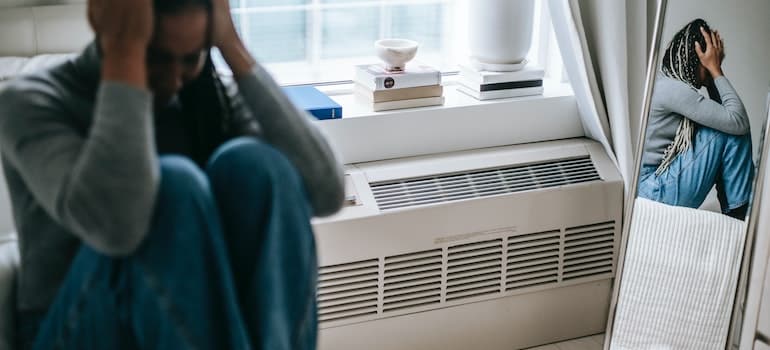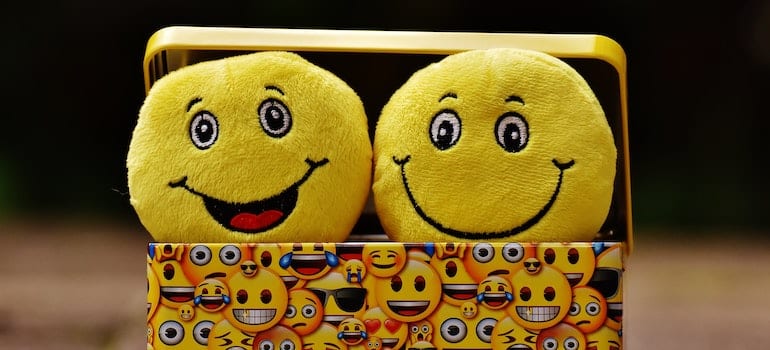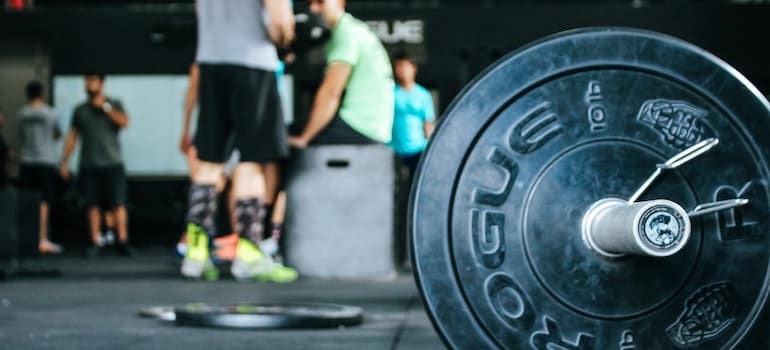Prolonged use of substances takes a toll on the body as well as the mind. When you decide to seek treatment for your addiction you’ll also want to start working on your physical wellness. This is why the best rehabs in WV include physical activities in their treatment programs. That shouldn’t come as a surprise to anyone who is familiar with the benefits of physical activity in recovery from alcohol or drug addiction – improved physical health, lower stress levels, better immunity, easier time focusing, and more. Whether you are joining an organized fitness training or doing your own thing, make sure to get some exercise in regularly during your recovery.
The effects of alcohol and drug addiction on physical health
We often talk about addiction as it relates to mental health. For most people, it is the physical effects of substances that are more readily observable. Drugs and alcohol produce both short-term and long-term effects on the body. In the short term, most substances produce their desired effects by interfering with the way brain cells use neurotransmitters. This is what gives you the high when you drink or do drugs. But it can also have some undesired side effects. These include increased sensitivity to light, sounds, or pain, tremors and shakes, changes to blood pressure, and more.

The side effects are not necessarily dangerous when experienced briefly and occasionally. The more often they happen (that is to say – the more often you abuse substances), the more difficult it is for your body to bounce back. If you don’t join a partial hospitalization program West Virginia in time, your body may suffer serious and even permanent consequences. The benefits of physical activity in recovery from alcohol or drug addiction can mitigate those somewhat by reactivating your body, rebuilding lost muscle mass, and even improving your mental health.
Long-term effects of drug and alcohol addiction
Different substances cause different effects with prolonged use. Here are the most common health concerns for some of the common addictions:
- alcohol: The long-term effects of alcohol abuse are well documented. People in alcohol rehab WV often suffer from permanent shakes and lack of coordination, high blood pressure, strokes, liver disease, disease of the GI tract, pancreatitis, dementia, and problems with sexual health (including infertility).
- barbiturates: Under the guidance of a medical professional, the use of barbiturates carries a relatively low risk. If you abuse them to the point where you need barbiturate rehab in WV, you can expect to have cardiovascular problems, breathing difficulties, liver disease, damage to the central nervous system, and seizures.
- marijuana: Compared to most substances, cannabis does not produce serious effects on physical health. However, people in marijuana rehab may nonetheless experience respiratory problems, persistent coughing and trouble breathing, blood pressure issues, and sometimes cognitive decline.
- cocaine: Most participants in outpatient cocaine rehab suffer from some physical side effects of drug use. These include nasal damage, trouble swallowing, respiratory problems, malnutrition, bowel atrophy and death, poor circulation, cardiac issues, and more.
- heroin: Like cocaine, heroin can have a devastating effect on physical health. The health issues most commonly found in those going through heroin rehab WV are collapsed veins, cardiovascular problems, abscesses and infections, liver disease, kidney issues, and pneumonia.
- benzodiazepine: The long-term effects of benzodiazepine abuse are still fairly under-researched. However, people in benzo rehab centers often complain of various cognitive impairments as well as immunodeficiency. Research shows that prolonged use of benzos is also likely to exacerbate existing mental and physical health issues.
- fentanyl: Long-term opioid users in fentanyl addiction rehab often suffer from life-threatening health problems, including bowel obstruction, breathing problems, heart failure, and the suppression of the immune system.
The importance of a holistic approach that includes physical activity to addiction recovery
Since addiction affects both your mental and physical state, it is necessary to address both during recovery in order for treatment to be effective. Only addressing the mental aspects of addiction won’t repair the damage to your body. This is why a good inpatient drug rehab in WV will employ a holistic approach that includes therapy, medication (when needed), nutrition, and physical activity. With such a multi-pronged approach, you can address all the damage addiction may have done to you – physically, emotionally, or mentally. A more rounded healing experience like this produces better results and increases your chances of maintaining sobriety long-term.

Physical benefits of physical activity in recovery from alcohol or drug addiction
The most obvious reason to incorporate physical activity into your recovery are the benefits of exercise to your body, fitness, and physical health. It is recommended that everyone get at least 30 minutes of some form of physical activity daily even when they don’t have any fitness goals in mind. Exercise and training, even low-effort activities like walking, keep our bodies functioning the way they should. When drugs or alcohol impair that functionality, physical activity can get you back on the right track.
Higher energy levels
It sounds counterintuitive that exercise increases your energy levels – after all, aren’t you expending energy when working out? But there are three ways in which working out can make you feel more energized:
- Regular exercise causes your muscle cells to produce more mitochondria, the cell organelles that convert nutrients to energy.
- Working out promotes better oxygen circulation, improving your body’s ability to effectively use energy.
- The release of endorphins triggered by physical activity will give you the feeling of having more energy.
When you’re busy with an intensive outpatient program in West Virginia and feel exhausted from all the work you’re putting into your recovery, consider going for a run instead of going to bed. It might be difficult to force yourself to get out and move but, you’ll be happy you did it when you feel more awake and alert for your next therapy session.
Better sleep
Disturbed sleep is common in individuals with substance use disorder, both during addiction and in recovery. Marijuana and alcohol abuse can lead to insomnia. Heroin and other opioids can make you feel drowsy and sleepy while conversely making it incredibly difficult to actually fall asleep. Cocaine withdrawal is often followed by vivid nightmares.

Aiding physical recovery
Addiction will often cause you to neglect your physical health. Combined with the use of substances that have a negative effect on the body, this will almost certainly cause you to lose muscle tone and mass even if you don’t end up malnourished due to loss of appetite. When you stop using drugs and alcohol, you’ll need to rebuild the body you’ve lost. A healthy diet will feed your body and help you regain weight but it’s exercise that will lead you to regain muscle, stamina, and strength. Before this happens, you’ll likely find physical activity difficult. It’s important to stick to an exercise regiment anyway through. Soon enough, you’ll be fit enough that working out won’t be hard and then you’ll be able to do more of it too.
Mental health benefits of physical activity in recovery from alcohol or drug addiction
In addition to healing your body, physical activity can improve your mental health. This is a well-established fact among mental health professionals. Regular exercise is recommended for people who suffer from a variety of mental illnesses including anxiety, depression, PTSD, eating disorders, and more. It can diminish the symptoms of stress and anxiety, dispel feelings of loneliness and isolation, and help you think more clearly. Furthermore, the release of endorphins and serotonin caused by exercise can improve your mood, help regulate bodily functions, and improve the quality and quantity of sleep. You are likely to experience all of the issues exercise helps with in recovery; combining physical activity with therapy will produce better outcomes more efficiently.

Reducing stress
Endorphins are the body’s natural way of dealing with pain and stress. They alleviate both the physical and mental consequences of stress – your brain regulates tension, discomfort, indigestion, and brain fog through chemicals such as endorphins. Stimulating their production through exercise will make the process more efficient. Furthermore, exercise can help do away with issues that exacerbate stress like insomnia and pent-up energy. Over time, regular exercise can also help your brain recover homeostasis that may be disrupted by substances.
Dealing with anxiety
Stress and anxiety are not the same. Stress is a short-term condition with an identifiable cause. Anxiety, on the other hand, often doesn’t have a trigger or is disproportional to what inspires it. If you experience anxiety frequently or even chronically in recovery, you may actually need treatment for anxiety as a co-occurring disorder. Anxiety can make recovery harder and trigger relapses, which is why it’s important to address it properly for rehab to be successful.
Even though stress and anxiety are different things, they have a lot in common. They manifest in similar mental and physical symptoms. It makes sense that the things that help manage stress often also help manage anxiety.
The same endorphins that combat stress will also combat feelings of anxiety. Exhausting your body with physical activity can also calm your mind by diverting your energy to exercise and leaving none for needless worrying. Of course, better sleep will reduce the likelihood of anxiety attacks. Finally, exercise often works as meditation but in motion. Repetitive movements clear your mind and make it easier for you to think rationally. Since anxiety is irrational, the ability to properly gather your thoughts usually helps do away with the feelings of unease.
Improved overall mood
Your overall attitude can make a huge difference in your recovery. When you doubt yourself and have a negative outlook toward therapy, you set yourself up for failure. When you approach treatment with a more positive outlook and commit to recovery, you have a much better chance at long-term sobriety. This is why it’s important to keep your spirits high. You will, of course, have bad days – those are unavoidable. However, the goal is to reduce those to a minimum and improve your overall mood.

Exercise can greatly help with this. The brain chemicals released during physical activity are known as the “happy hormones” for a reason – they will boost your mood in the immediate aftermath of a workout. By regularly stimulating their release, you will become better at regulating your moods. This is especially important when you are in drug and alcohol rehab because substances alter your brain chemistry. The effects of exercise can, therefore, offset this change and help your brain get back to normal functionality. This, in turn, reduces cravings as you are no longer dependent on substances to make you feel good.
The benefits of physical activity in recovery from alcohol or drug addiction to sobriety
Physical activity in rehab will improve your physical and mental health; improved overall wellness will, in turn, make recovery from addiction easier. But does physical activity affect your sobriety itself? The short answer is yes. That’s why physical activity is included in holistic therapy for addiction. People who include physical activity in their treatment regimen experience easier, more comfortable recovery and longer-lasting sobriety.
Easing withdrawal symptoms
One of the most difficult parts of rehab from drugs and alcohol is dealing with the detox and withdrawal. When your body is accustomed to the presence of substances in the system, not using them causes discomfort. How bad the discomfort is will depend on the substance and the severity of addiction. Most people experience some combination of nausea, tremors, insomnia, muscle aches, and fatigue. These symptoms are the worst in the early stages of recovery. They are also what makes early stages of recovery so difficult for most people.

Easing the symptoms of withdrawal can make the first steps of recovery easier for you. Exercise, in particular aerobic exercise and mind-body practice, can alleviate withdrawal symptoms. They serve as a form of pain management through the release of endorphins as well as a distraction from cravings and other mental symptoms. You may not be able to participate in much physical activity during the detox itself. When you are able to, start implementing some brisk walks or yoga into your day and increase the duration or intensity of the exercise gradually as you recover. You’ll find the symptoms of withdrawal will go away faster and be less intense when they do happen.
Regaining physical strength and stamina
Drug and alcohol rehab can be exhausting, both mentally and physically. It takes a lot of energy just to deal with withdrawal. Therapy can take a lot out of you on top of that. When you’re already tired and weak, it can be harder to focus on these things; what little energy you have is dedicated to just getting you through the day. Having more energy will make it easier to fully commit to the treatment program. Luckily, exercise will help your body regain at least some of its capabilities. You can build up your stamina again and get more energy through regular workouts. This will make it easier for you to get through your daily treatments and still be able to do things for yourself in your free time. When you are able to do more things, especially things you enjoy, recovery becomes easier.
Reducing the risk of relapse
Studies show that around 40-60% of all people with substance use disorder will relapse at some point. Some even struggle with multiple relapses into addiction. If you are worried that you might relapse or if you’ve repeatedly relapsed in the past, you may want to look into in relapse prevention WV. Your case manager and therapist can work with you on a plan that will lower the risk of relapse after rehab. A part of that plan is usually some form of physical activity.

Regular physical activity can significantly reduce the risk of relapse. It helps you manage stress and anxiety, which are both major triggers for relapse. Furthermore, it provides structure and routine to your day-to-day, which makes it easier to avoid the temptation of substance use. It will additionally improve your overall mental health and put you in a better mood so that you don’t feel like you need to use substances to feel better. Finally, working out can give you something new to focus on. If you commit to a fitness regimen or to a sport, you will spend more time on your new hobby and less time thinking about drugs or alcohol.
The social benefits of physical activity in recovery from alcohol or drug addiction
Addiction to drugs and alcohol will negatively impact your relationships. You may lose friends or become distant from your family members. This can, in turn, make your recovery harder; having support from your loved ones can get you through a lot and not having that support will be a big hindrance. That’s why it’s important to repair the relationships you can and also form new ones.
While you are in treatment from alcohol or drug addiction, you will almost certainly participate in group therapy for addiction. This isn’t exactly a social event – it is, above all, therapy. It’s a way for you to have some regular contact with people and get the benefits of social interaction. Once you leave rehab, you’ll need to find new ways to connect with people. Physical activity can be one of those ways.
Making connections
There are many workouts you can do on your own – walking, hiking, jogging, and yoga, to name a few. But, no workout is necessarily a loner’s activity. You can do almost any physical activity in the company of friends. In fact, it may be better to train with friends; you can push each other to do better and hold each other accountable to working out regularly.

Perhaps more importantly, however, participating in physical activity can be a way of meeting like-minded people. Maybe you run the same route or you both need someone to spar with in the gym. You may have joined the same group workout or the same local sports league. People who like working out, especially in a group setting, tend to be social. They are likely to respond well to your attempts at striking up a conversation. You already have something in common, so why not talk about it? You can make some great friends this way!
Regular social contact
Physical activity is most effective when it is practiced regularly. Whatever training you take up, you’ll want to do at least two to three times a week. If you exercise with others, you’ll also be meeting with them regularly. This is good for you – it forces you to socialize regularly but keeps the context of that socialization rather casual. Regular social contact will, in turn, lead to stronger bonds with people. These people can form your support system and be there for you when you are struggling. Finally, spending time with friends is a great mood booster. Working out in a group can also improve your mental health, decrease stress levels, and combat potential relapse triggers.
Ideas to achieve the benefits of physical activity in recovery from alcohol or drug addiction
Your physical and mental state won’t be the same at all stages of addiction recovery. You will likely experience more and more intense symptoms in the early stages of sobriety. In time, these will get easier to deal with. Since recovery is not linear, you will also probably experience a setback every once in a while.

So it stands to reason that you will start out only capable of light physical activity. Your condition will improve over time, especially as you work out more. However, you will still have bad days where you don’t have the energy to do much. Luckily, there are many different ways to incorporate physical activity into your recovery journey. You can exercise in different ways at different times, depending on what you’re feeling up to in the moment. What matters is getting some physical activity in regularly.
Physical activities suitable for people in addiction recovery
- walking and hiking are easy to get into, don’t require much in terms of investment, and can be of varying intensity
- jogging is a great way to get fit, can be practices alone or in company, and doesn’t require a lot of equipment
- swimming is the perfect activity for those who are not very strong or fit to begin with
- yoga combines physical activity with breathing exercises and mindfulness, which can all be helpful for people in addiction recovery; furthermore, it works as both a solo and group activity and comes in varying levels of difficulty
- martial arts are a great way to release pent-up energy and anger; they are a full-body work out that can turn into more than a hobby and can even come in handy in day-to-day life
- going to the gym is a great way to make yourself accountable to someone else and force yourself to work out regularly; besides, gyms provide you with near-endless opportunities for physical activity and even socialization
- learning a sport is a great way to make a long-term commitment to physical activity and start a new hobby; joining an amateur sports club in WV will also give you the opportunity to make new friends
Enjoying the benefits of physical activity in recovery from alcohol or drug addiction long-term
It’s important to remember that recovery doesn’t end when you finish a rehab program. You will still struggle occasionally for months and even years afterward. For many, sobriety is a life-long fight that gets easier over time but never really stops. You’ll need something to help your physical and mental health long-term and exercise is one of the things that can do that. The benefits of physical activity in recovery from alcohol and drug addiction will continue for as long as you continue to exercise regularly. Enroll in an activity you really enjoy, join a gym or invite a friend to workout with. Finding the motivation to start can be challenging, however, as long as you commit you will reap the benefits physical activity has on your mental and physical health along with your sobriety.



